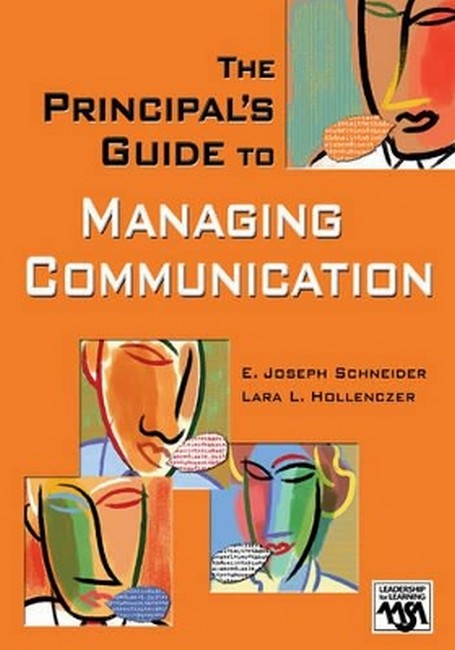E. Joseph Schneider has been in education for more than 30 years as an association executive, research manager, and communication director. He is Managing Partner of Leadership Develop-ment Resources, an educational consulting com-pany based in Arlington, Virginia. Concurrently, he also serves as executive secretary of the National Policy Board for Educational Administration, a coalition of ten national education associations concerned about educational leadership. Previously, he was the deputy executive director of the American Association of School Administrators (AASA), the national membership association of school superintendents. Prior to that, he was the deputy executive director of the Southwest Regional Educational Laboratory, Los Alamitos, California. He also has 15 years of experience as the CEO of a Washington, D.C., education asso-ciation whose members are university-based research centers and nonprofit educational research and development agencies. His mas-ter's degree in journalism is from the University of Oregon. He is a member of the National School Public Relations Association. He is coauthor of The Unauthorized Communication Handbook (1991) and Exploding the Myths: Another Round in the Education Debate (with Paul D. Houston) (1993). He has also written more than 100 education-related journal, magazine, and newsletter articles. His latest book, coauthored with Ronald G. Corwin, is The School Choice Hoax: Fixing America's Schools (2005). Lara L. Hollenczer, the mother of two public school youngsters, is heavily involved in local educational issues as a parent, community activist, and local business owner. Professionally, she made her mark by helping law firms har-ness the capacity of the Internet for "branding" their firms, conducting market research, and developing new clients. After stints at several large Washington, D.C., law firms, she joined a fast-growing Annapolis, Maryland, advertising and public relations agency where her clients included local and state teacher associations. After several years at the agency, she expanded her business to assist clients with research, market development, and media planning. She is accredited in public relations with the Public Relations Society of America and is a Professional Certified Marketer with the American Marketing Association. Her master's degree is in communication management from Syracuse University.
Request Academic Copy
Please copy the ISBN for submitting review copy form
Description
List of Tables and Figures Series Foreword Series Introduction Preface About the Authors Part I: Understanding Stakeholders and Publics 1. Who Are the Stakeholders and Publics in Your School? 2. Engaging Stakeholders in Meaningful Communications 3. Four Approaches to Communication Management 4. Strengthening School-Family-Community Partnerships Part II: The Strategic Management of Communication 5. Applying Communication Management in Different Settings 6. Communicating Under Pressure 7. Thinking Strategically About Communication 8. Using Technology in Communication 9. Implementing Effective Communication Practices 10. Answering the Call to Leadership References Index
"I like this book. Joe Schneider and Lara Hollenczer recognize that communication is the essential skill for school leaders, and that in a public enterprise, communication is as much about listening and responding as it is about initiating and persuading. Practical school examples make this book useful for new and seasoned administrators alike." -- Stinson Stroup, Executive Director "The Principal's Guide to Managing Communication is a timely and informative book that offers knowledge and skills necessary to navigate the turbulent waters of school administration in the 21st century. It's a must read for those who would be effective school leaders focused on continued school improvement." -- Walter H. Warfield, Executive Director "Schneider and Hollenczer fully understand the principal's critical role as a community relations expert. Their strategies weave through the entire community fabric and focus on much more than merely manipulation information. Establishing good communication is hard work and does not happen automatically - Schneider and Hollenczer get it! This book must get to every university preparation program in the country." -- Theodore Creighton, Executive Director

